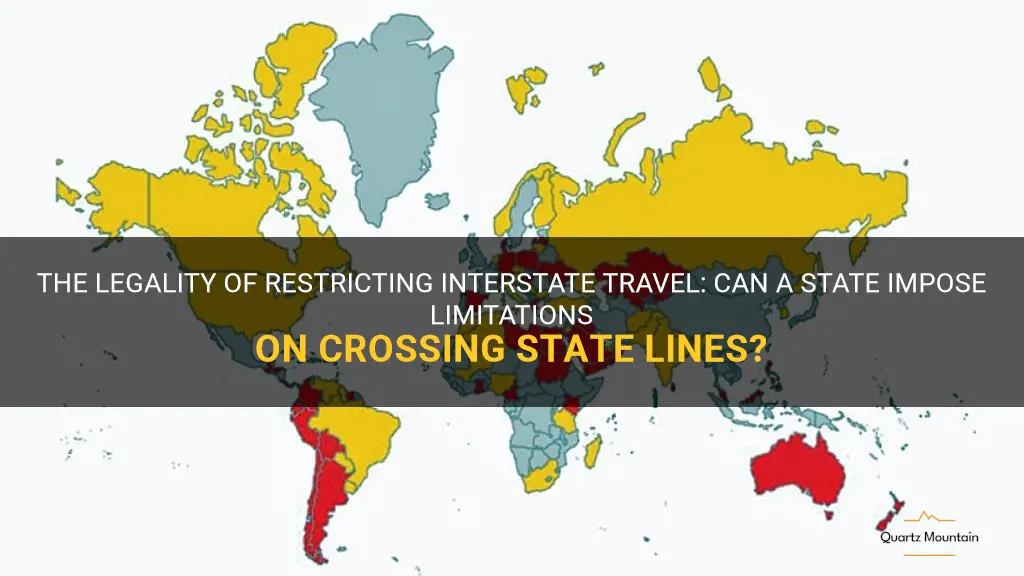
In a nation built on principles of freedom and mobility, the notion of restricting interstate travel seems to go against the very fabric of the United States. Yet, in times of crisis or emergencies, questions arise about the limits of individual liberties and the role of the state in protecting the greater good. Can a state actually restrict interstate travel? The answer may surprise you, as constitutional interpretations, historical precedents, and public health concerns all come into play. Join us as we delve into this complex issue and explore the potential limitations on our cherished right to travel across state lines.
| Characteristics | Values |
|---|---|
| Authority to restrict travel | Yes |
| Methods of restriction | Quarantine, travel permits, border closures |
| Duration of restrictions | Varies by state |
| Exemptions | Essential workers, residents, special cases |
| Enforcement of travel restrictions | Fines, penalties, checkpoints |
| Inter-state travel permits | Required in some states |
| Public health declarations | Used as basis for travel restrictions |
| Impact on tourism and economy | Negative |
| Legal challenges | Possible |
| Coordination with neighboring states | Varies by state |
| Monitoring and tracking of travelers | Electronic systems, contact tracing |
| Exceptions for emergencies or disasters | Varies by state |
What You'll Learn
- Is it legal for a state to restrict interstate travel?
- What are the reasons why a state would want to restrict interstate travel?
- What measures can a state take to restrict interstate travel?
- Are there any constitutional limitations on a state's ability to restrict interstate travel?
- Has any state successfully implemented restrictions on interstate travel in the past?

Is it legal for a state to restrict interstate travel?
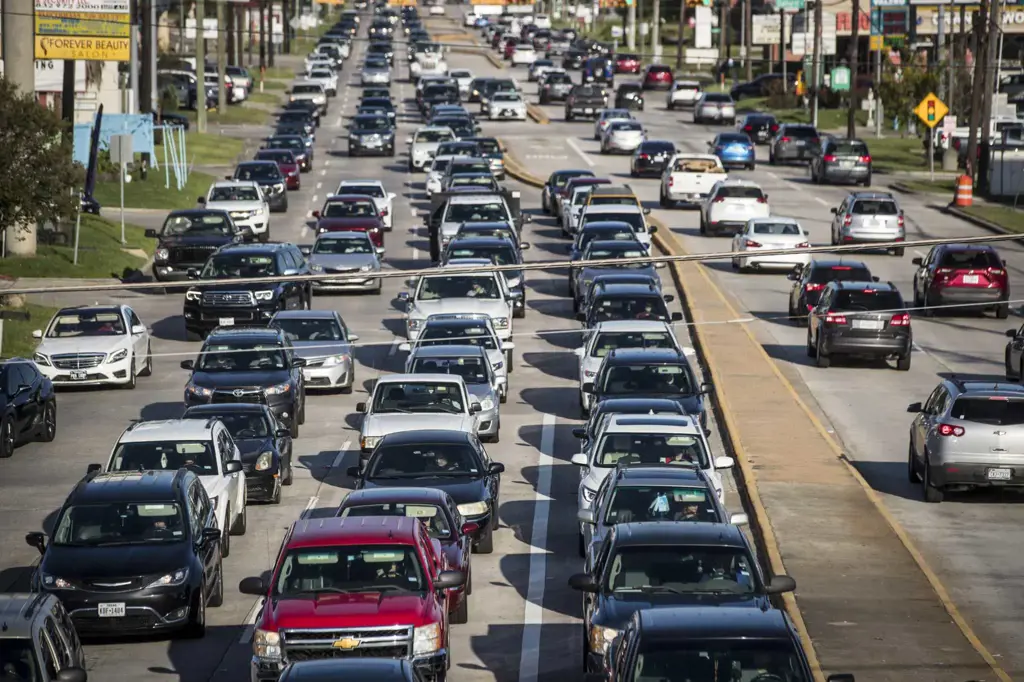
The issue of whether a state can legally restrict interstate travel is a complex and contentious one. While the Constitution grants certain powers to the federal government, it also recognizes the sovereignty of individual states. This does not mean, however, that states have unlimited power to restrict interstate travel.
The fundamental right to travel has long been recognized as an essential part of the freedom of movement guaranteed by the Constitution. This right has been protected by the Supreme Court in cases such as Saenz v. Roe (1999) and Shapiro v. Thompson (1969). These cases established that the right to travel includes the right to enter and leave another state, the right to be treated equally with resident citizens of the state you are visiting, and the right to be free from unduly burdensome travel restrictions.
However, the right to travel is not absolute and can be limited under certain circumstances. The Supreme Court has held that states can impose reasonable restrictions on travel for public health and safety reasons. For example, states can require travelers to submit to health screenings or quarantine measures during times of public health emergencies.
During the COVID-19 pandemic, many states implemented restrictions on interstate travel to slow the spread of the virus. These restrictions included mandatory quarantine periods and travel restrictions for individuals coming from hotspots or high-risk areas. These measures were justified under the state's police powers to protect public health and safety.
While there is a significant amount of legal precedent supporting states' authority to restrict interstate travel, there are also limits to this authority. Any restrictions on travel must be narrowly tailored to serve a compelling state interest and cannot be arbitrary or discriminatory. For example, a state cannot impose travel restrictions solely on individuals from certain racial or ethnic backgrounds.
In addition, any restrictions on interstate travel must not unduly burden or infringe upon the fundamental right to travel. This means that states must carefully consider the impact of their restrictions on individuals' ability to exercise their right to travel.
In conclusion, while states have the authority to impose restrictions on interstate travel for public health and safety reasons, these restrictions must be reasonable and narrowly tailored to serve a compelling state interest. States cannot unreasonably burden or infringe upon the fundamental right to travel, and any restrictions must be applied equally and without discrimination. As the situation surrounding the COVID-19 pandemic continues to evolve, it will be important for states to balance the need to protect public health with the rights of individuals to travel freely between states.
Navigating Munich's Travel Restrictions: What Visitors Need to Know
You may want to see also

What are the reasons why a state would want to restrict interstate travel?
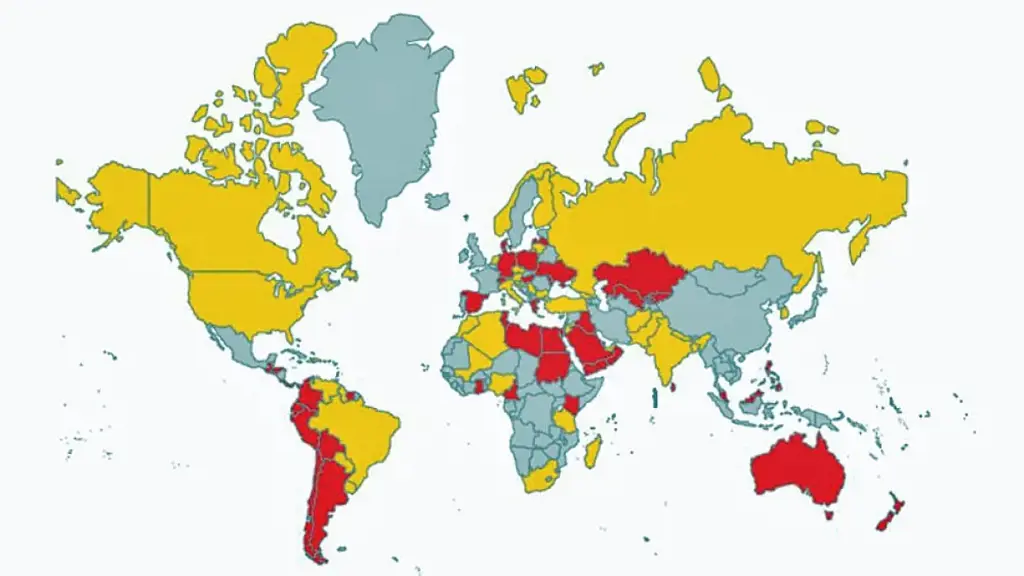
Interstate travel is essential for the smooth functioning of a nation, allowing people and goods to move freely between states. However, there are certain circumstances in which a state may choose to restrict interstate travel. These reasons can vary based on the specific circumstances and the needs of the state. Here are some common reasons why a state would want to restrict interstate travel:
- Public Health Emergencies: During times of public health emergencies, such as disease outbreaks or pandemics, states may choose to restrict interstate travel to contain the spread of the disease. By limiting movement across state lines, officials can better control the movement of potentially infected individuals and minimize the risk of transmission.
- Natural Disasters: In the aftermath of a natural disaster, such as a hurricane, earthquake, or wildfire, states may restrict interstate travel to ensure the safety and security of affected areas. Travel restrictions can prevent unnecessary congestion, facilitate the movement of emergency response personnel, and allow for effective disaster management and recovery efforts.
- Security Threats: In the event of security threats, such as terrorist activities or civil unrest, states may institute travel restrictions to protect their residents and maintain law and order. These measures can help prevent the movement of individuals or goods that could pose a threat to public safety and security.
- Border Control: States may restrict interstate travel as part of their efforts to control the flow of people and goods across their borders. This could be due to concerns related to immigration, smuggling, or national security. By implementing strict border control measures, states can regulate entry and exit points, ensuring compliance with applicable laws and regulations.
- Economic Protectionism: In some cases, states may restrict interstate travel to protect their local industries and economy. For example, states may impose tariffs or other trade barriers on goods coming from other states to promote the growth of local industries and protect domestic jobs. Travel restrictions can be part of a broader strategy to achieve economic protectionism objectives.
It is important to note that any restrictions on interstate travel should be based on careful consideration of the circumstances, weighing the benefits against potential drawbacks. States need to balance the need for security, public health, and economic interests with individual freedoms and the overall well-being of their residents. Clear communication about the reasons for travel restrictions and their limitations is also crucial to ensure public compliance and understanding.
The Implications and Challenges of Restricted Air Travel
You may want to see also

What measures can a state take to restrict interstate travel?
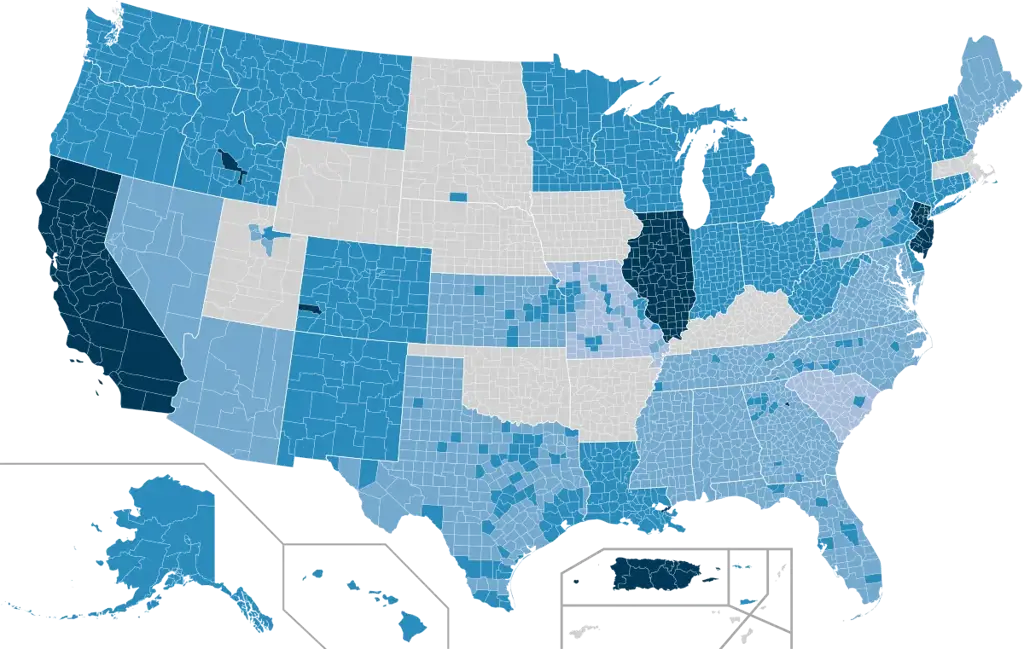
Interstate travel has long been a fundamental right in the United States. However, there are instances where a state may need to restrict such travel for various reasons, such as during times of emergency or public health crises. In these situations, states have the authority to implement measures to restrict interstate travel to protect the safety and well-being of their residents.
One of the measures that a state can take to restrict interstate travel is the implementation of travel restrictions or quarantine requirements. For example, during the COVID-19 pandemic, many states put in place measures that required individuals traveling from high-risk areas to self-quarantine upon arrival. These restrictions can be enforced by requiring travelers to provide proof of a negative COVID-19 test or by conducting random checks at designated checkpoints. By implementing these measures, states can mitigate the spread of infectious diseases and protect their residents from potential harm.
States can also restrict interstate travel by implementing border controls. This can be done by setting up checkpoints at state borders and requiring travelers to provide identification and a legitimate reason for their travel. In certain situations, states may require individuals to obtain permits or passes to enter the state. This type of restriction is often implemented during times of emergency, such as natural disasters or civil unrest, to ensure the safety and security of the state and its residents.
Another measure that states can take to restrict interstate travel is the imposition of tolls or fees on certain highways or bridges. By implementing tolls, states can deter individuals from traveling across state lines and encourage them to use alternative routes or modes of transportation. This type of restriction is often used to alleviate congestion on major highways or to generate revenue for state infrastructure projects.
Moreover, states can work together and form interstate compacts to implement travel restrictions. An interstate compact is a formal agreement between two or more states that addresses a common issue or concern. For example, the Northeastern states of the United States formed the Northeast Interstate Travel Compact to coordinate travel restrictions during the COVID-19 pandemic. By working together, states can create consistent rules and regulations to restrict interstate travel and ensure the effectiveness of these measures.
While states have the authority to implement measures to restrict interstate travel, it is important to note that these measures must be justified and proportionate to the situation at hand. Any restrictions on interstate travel must also comply with the Constitution, including the right to travel and the commerce clause. States must carefully balance the need to protect public safety with the preservation of individuals' rights and freedoms.
In conclusion, states have various measures at their disposal to restrict interstate travel when necessary. From implementing travel restrictions and quarantine requirements to implementing border controls and imposing tolls, these measures can help protect the safety and well-being of states' residents. It is important for states to carefully consider the necessity and proportionality of these measures and to ensure they comply with the Constitution and individuals' rights.
Exploring the Driving Travel Restrictions: Are There Any Restrictions in Place?
You may want to see also

Are there any constitutional limitations on a state's ability to restrict interstate travel?
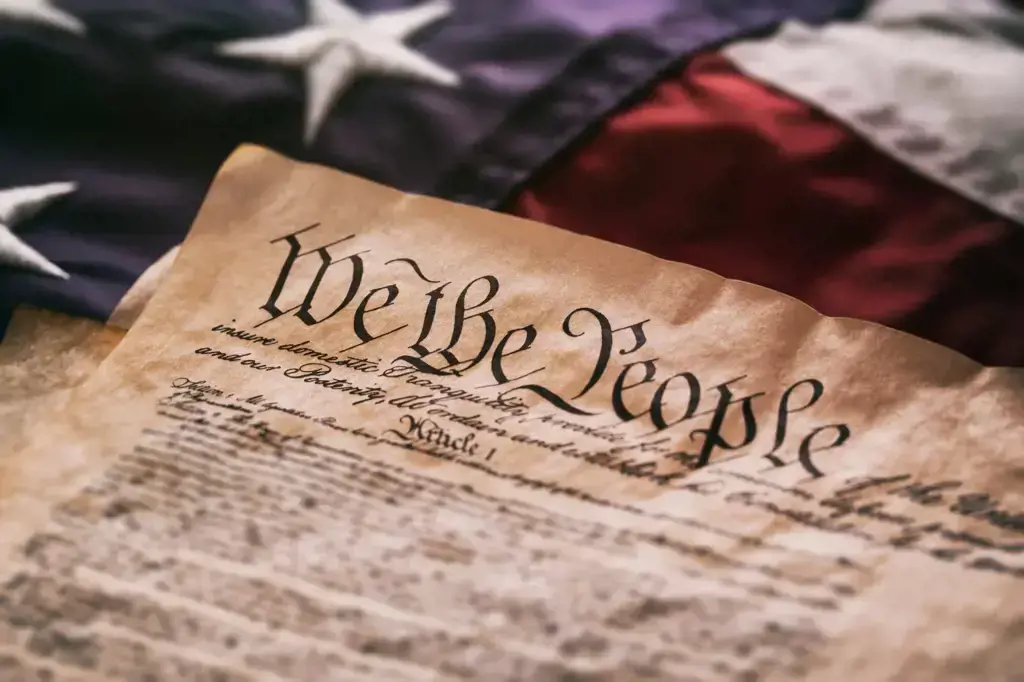
Interstate travel is a fundamental aspect of our nation's economy and individual freedom. However, in times of crisis or emergency, states may seek to impose restrictions on the movement of people from out of state in order to protect public health and safety. But are there any constitutional limitations on a state's ability to do so?
The short answer is yes. The Commerce Clause of the United States Constitution, found in Article 1, Section 8, grants Congress the power to regulate interstate commerce. This clause has been interpreted by the courts to include a broad range of activities, including interstate travel. As a result, any state law that unduly burdens or discriminates against interstate travel may be struck down as unconstitutional.
The Supreme Court has recognized that the right to travel is a fundamental right protected by the Constitution. In the landmark case of Saenz v. Roe (1999), the Court held that the right to travel includes the right of citizens to enter and leave states freely. According to the Court, "the constitutional right to travel from one state to another... occupies a position fundamental to the concept of our Federal Union. It is a right that has been firmly established and repeatedly recognized."
However, the court has also recognized that the right to travel is not absolute and may be subject to reasonable restrictions. In cases involving public health and safety, states have the authority to impose restrictions on interstate travel as long as they are necessary and narrowly tailored to achieve a compelling government interest.
For example, during the COVID-19 pandemic, many states have imposed restrictions on out-of-state travelers, such as mandatory quarantine requirements or travel bans. These restrictions have generally been upheld by the courts as constitutional, as they are designed to protect public health and safety and are based on scientific evidence and expert recommendations.
That being said, states must be careful to ensure that their restrictions on interstate travel do not unduly burden or discriminate against out-of-state travelers. This means that states should have a rational basis for their restrictions and should treat all travelers, regardless of their state of origin, in a similar manner.
In conclusion, while states have the authority to impose restrictions on interstate travel for public health and safety reasons, they must do so in a manner that is consistent with the Constitution. Any restrictions that unduly burden or discriminate against out-of-state travelers may be struck down as unconstitutional. It is important for states to strike a balance between protecting public health and preserving individual freedom and the right to travel.
California Imposes Restrictions on Travel to Florida Amid COVID-19 Surge
You may want to see also

Has any state successfully implemented restrictions on interstate travel in the past?
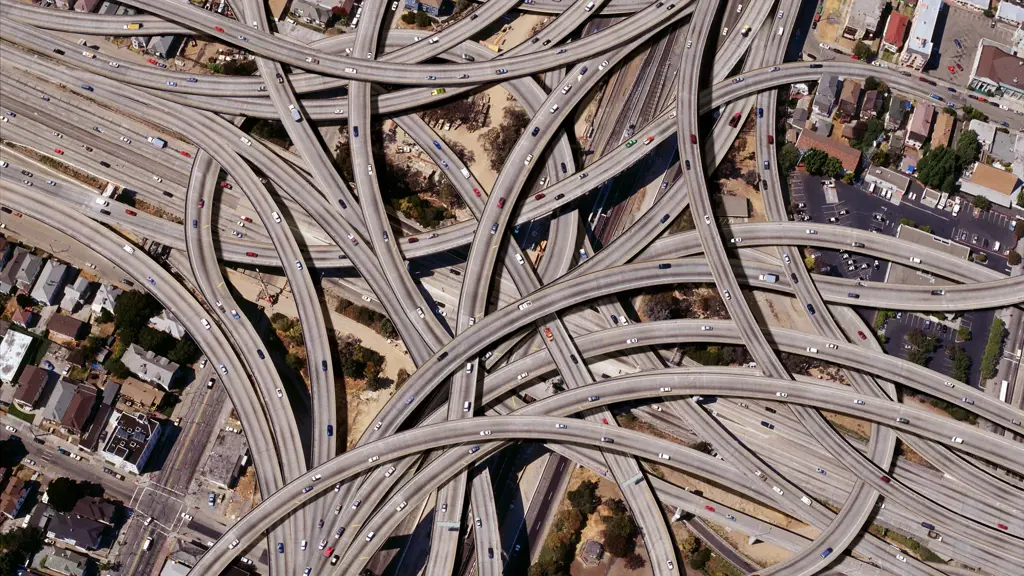
In times of crisis or emergency, state governments have the authority to implement restrictions on interstate travel to help protect public health and safety. While such restrictions can be controversial and may face legal challenges, there have been instances where states have successfully implemented and enforced these measures.
One notable example is the response to the COVID-19 pandemic. As the virus spread across the United States in early 2020, several states implemented restrictions on interstate travel to help contain the spread of the disease. One of the most well-known examples is the state of New York, which became the epicenter of the pandemic in the spring of 2020.
In March 2020, New York Governor Andrew Cuomo issued an executive order requiring anyone traveling to New York from states with a high number of COVID-19 cases to quarantine for 14 days upon arrival. The order required travelers to provide their contact information and mandated that violators could face fines and mandatory quarantine. Similar restrictions were implemented by other states, such as New Jersey and Connecticut, forming a regional travel advisory in the Northeastern United States.
These interstate travel restrictions were successful in helping to slow the spread of the virus and reduce the number of cases in the region. By limiting the number of people traveling into the region from areas with high infection rates, states were able to prevent further transmission of the virus and protect their residents.
While the effectiveness of these restrictions was debated, they were generally considered to be an important tool in the early stages of the pandemic when there were limited testing and contact tracing capabilities. As the pandemic progressed and testing and vaccination efforts became more widespread, many of these interstate travel restrictions were lifted or modified to reflect the changing situation.
Another example of successful interstate travel restrictions can be seen during natural disasters such as hurricanes. In states prone to hurricanes, such as Florida and Louisiana, authorities often implement evacuation orders and restrictions on interstate travel to ensure the safety of residents. These restrictions are typically enforced by law enforcement agencies and can include measures such as road closures, checkpoints, and curfews.
These restrictions aim to minimize traffic congestion, facilitate the evacuation process, and prevent non-essential travel during dangerous weather conditions. While they may inconvenience some individuals, they are generally accepted as necessary for public safety. The success of these measures can be measured by the fact that they have helped save countless lives during past hurricanes.
However, it is important to note that implementing interstate travel restrictions can be challenging and may face legal challenges. The Constitution provides for the freedom of movement between states, and any restrictions on interstate travel must meet a strict scrutiny standard, meaning they must be narrowly tailored to serve a compelling government interest.
In order for interstate travel restrictions to be deemed constitutional, they must be based on legitimate public health or safety concerns and be the least restrictive means of achieving the desired outcome. Additionally, any restrictions must also not discriminate against out-of-state residents or unduly burden individuals' right to travel.
In conclusion, while implementing restrictions on interstate travel can be complex and may face legal challenges, there have been instances where states have successfully implemented and enforced such measures. Examples include the COVID-19 travel restrictions in the Northeastern United States and the evacuation orders during hurricanes. However, it is important for any restrictions to be carefully considered, based on sound public health or safety concerns, and comply with constitutional requirements.
Exploring the Current Travel Restrictions to Colombia: What You Need to Know
You may want to see also
Frequently asked questions
No, according to the U.S. Constitution, the Commerce Clause grants Congress the power to regulate commerce among the states. This includes the ability to prevent states from imposing restrictions on interstate travel. The Supreme Court has repeatedly held that states cannot unreasonably burden interstate commerce, which would include restrictions on travel between states.
While states generally cannot restrict interstate travel, there may be circumstances where the government has the authority to impose limitations. For example, during a public health emergency or natural disaster, states may have the power to enforce travel restrictions for the purpose of protecting the public's health and safety. However, any restrictions must be narrowly tailored, reasonable, and based on scientific evidence.
Yes, in certain situations, a state may require individuals to quarantine upon entering the state. This is particularly common during public health emergencies, such as a pandemic or outbreak of a contagious disease. The state's ability to enforce quarantine requirements is rooted in its authority to protect public health and safety. However, any quarantine requirements must be reasonable, have a valid public health justification, and not discriminate against individuals from other states.







